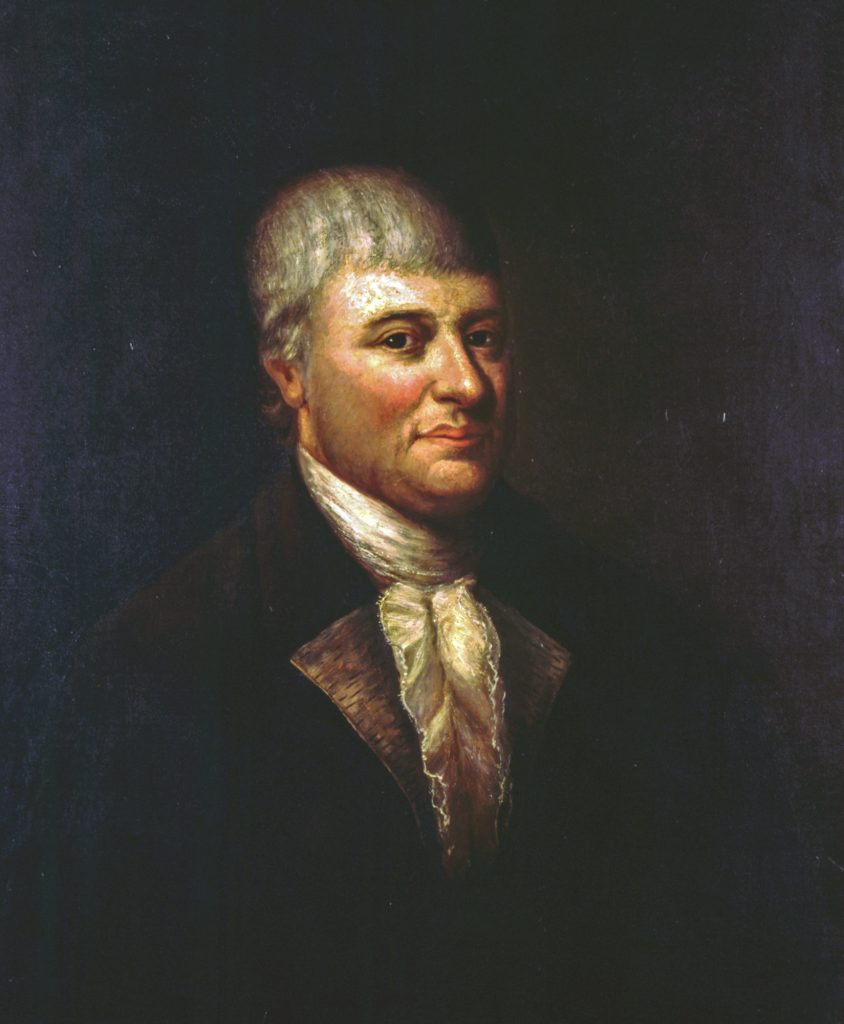Born in New York City, Moses Michael Hays was the son of Dutch immigrants, Judah Hays and Rebecca Michaels Hays. His father, a merchant, brought him into business, and Moses too would make an impressive name for himself in shipping and retail.
On August 13, 1766, Hays married Rachel Myers in a double wedding, as her sister Rebecca married Solomon Marache. In 1769 the couple moved to Newport, booming from international shipping, where Hays continued to pursue his fortunes in mercantilism. Meanwhile, Hays became involved with New York synagogue Shearith Israel, and served as parnas in 1767.
Success in Newport, however, was proving elusive, and Hays ended up briefly in debtor’s prison. After managing to pay back his creditors, he succeeded in reestablishing himself in trade.
With the Revolution on the horizon, Hays became a supporter of the American cause. However, in 1775 he refused to sign a declaration of loyalty to the colonies, because it contained the wording, “upon the true faith of the Christian.” He instead wrote a public letter explaining his support for the cause and why he couldn’t sign. When the phrase had been removed from the oath, he gladly appended his name.
Meanwhile, Hays and his family evacuated the city before the British occupation of Newport. Arriving in Boston, he perhaps did not realize that he would call this city home for the rest of his life. But Boston seemed to suit Hays, and his luck in business vastly improved. Becoming one of the largest importers, shipbuilders and insurers in the Far East trade, in 1784 Hays founded and served as initial depositor in the First Bank of Massachusetts. In addition, he founded several companies, including one with friend Paul Revere.
Hays engaged as well with freemasonry, and he helped establish the masons in New England. He was admitted to the Massachusetts lodge in 1782, a rare accomplishment for a Jew. A decade later, Hays was serving as grandmaster, Paul Revere his deputy. Hays also proved himself an important philanthropist for the city of Boston, helping to endow Harvard College, building theaters in Boston and paying for the upkeep of Boston Commons.
In addition to Moses and Rachel’s seven children, Hays had taken in his sister Reyna Touro and her four children after her husband died. When she too passed away in 1787, Hays took full responsibility for the upbringing of his nieces and nephews, including Judah and Abraham Touro. They lived in a fifteen-room brick house, which was frequented by, among other guests, Samuel May, grandfather of Lousia May Alcott and childhood friend of the Hays and Touro children. Years later, thinking back on his visits, he recalled:
If the children of my day were taught among other foolish things to dread, if not despise Jews, a very different lesson was impressed upon my young heart. … [The Hays] house … was the abode of hospitality. … He and his truly good wife were hospitable, not to the rich alone, but also to the poor. … I witnessed their religious exercise, their fastings and their prayers. … [As a result] I grew up without prejudice against Jews—or any other religionists.
